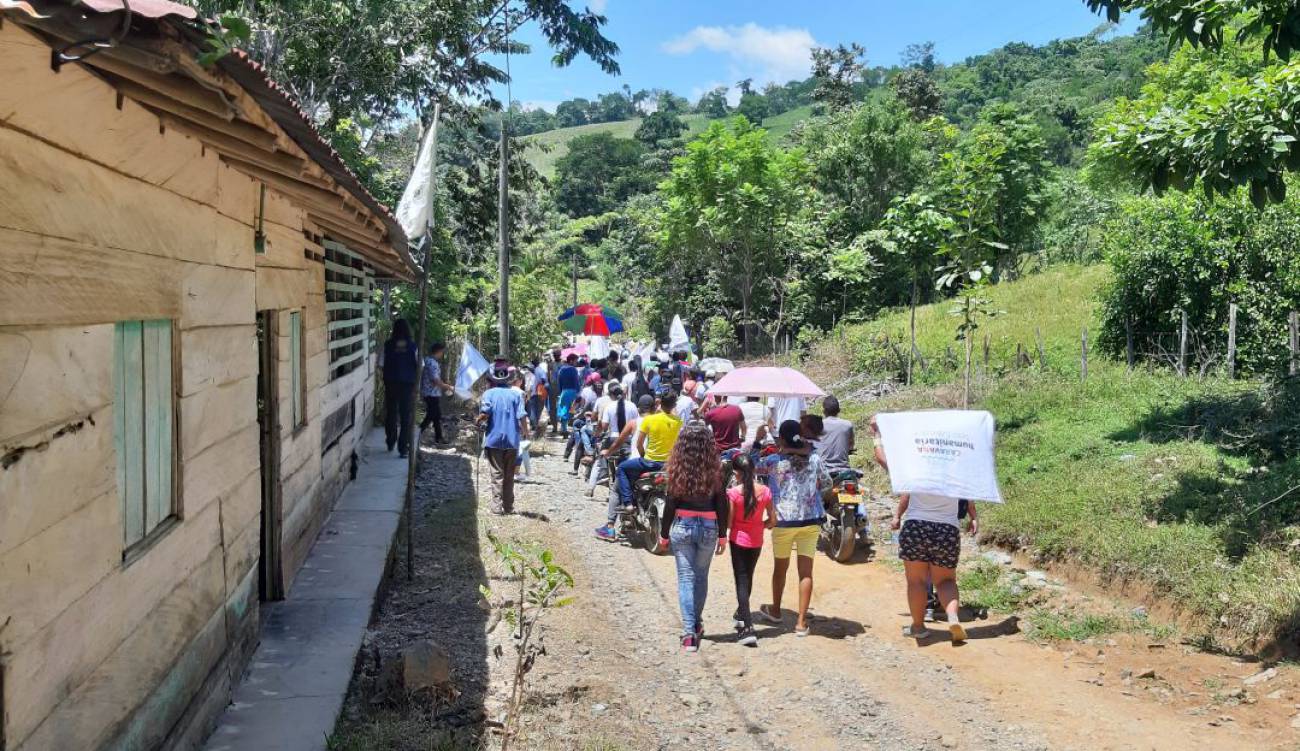Colombia: Armed Conflict Reactivated in 2021

During the year 2020 acts of violence with great intensity are recorded, there has been an increase in the assassination of social leaders, massacres, and confrontations among armed groups. The upsurge in violence observed since Iván Duque assumed the is sharpened within the framework of mandatory quarantine measures decreed to mitigate the spread of the virus.
The militarist vision of the security of the Duque government is characterized, mainly, by the increase of the military presence in the most violent areas of the country without the full support of the institutions, nor by the recovery of the territory from the part of the State.
Under the supervision of the security policy of the Duque government, the illegal armed groups have succeeded in increasing their territorial presence: FARC dissidents went from operating in 56 municipalities in 2018 to 113 in August 2020, and the ELN went from being in 99 municipalities to more than 160 in 2020. Paramilitarism managed to consolidate a larger territorial presence: currently, the Clan del Golfo operates, roughly, in more than 200 municipalities today.
According to INDEPAZ figures1, since the signing of the Peace Agreement until April of this year, 1,166 social leaders have been murdered, 86% of victims are men and 14% are women. In 2020 alone, the assassination of 310 social leaders were recorded, and between January 1 and April 20, 2021, 52 victims have already been recorded. Most murdered are leaders of peasant, indigenous and Afro-descendant communities confronted by armed groups serving economic and political interests, including drug traffickers, and land and natural resources grabbers.
The execution of massacres is also on the rise: during the 2020, 91 incidents of this type, resulting in 381 fatal victims were recorded. Between April 1 and April 22, 2021, 29 massacres with 105 fatal victims were recorded.
According to information from the Special Court for Peace – JEP2, in Spanish, 15% of massacre cases show signs of torture or cruel treatment to victims before being murdered. In the same way, forced displacement is the type of victimization that has increased the most after the signing of the Peace Agreement.
The JEP highlights that the critical security conditions are affecting its work. About this, the following facts are emphasized:
- Obstacles in carrying out exhumations and forensic diligence due to a coincidence between the areas prioritized by this jurisdiction and the territorial control or recovery plans on the part of the ELN.
- The humanitarian crisis in the Pacific of the department of Nariño, having failed the future of the priority macro-trial # 2, relating to assignments among indigenous peoples, afro-descendants, and peasants of the municipalities of Ricaurte, Tumaco and Barbacoas (Nariño).
- There is a deterioration in the guarantees of participation in appearances and givers of the truth in several priority settings, given that ex-combatants and victims are being threatened.
Several institutions agree on the fact that 2021 is the most violent year since the signing of the Peace Agreement. According to information from the JEP Investigation and Accusation Unit, between January 1 and 24, 1 social leader was assassinated every 41 hours and a massacre was recorded each 4 days. Also, nearly 6,500 people were victims of forced displacement between April 1 and 4, 2021.
In the table below, based on JEP’s information, the link among the facts affecting civilians during 2021 can be appreciated:
| Period | Families displaced by force | Persons displaced by force | Families in confinement | Massacres |
| 01/01/21 – 24/01/21 | 57 | 200 | 80 | 6 |
| 25/01/21 – 07/02/21 | 240 | 295 | 88* | 5 |
| 08/02/21 – 21/02/21 | 219 | 1.691 | 731 | 4 |
| 22/02/21 – 07/03/21 | 80 | 965 | 135 | 2 |
| 08/03/21 – 04/04/21 | 1.081 | 3.360 | 282 | 8 |
Source: Author’s elaboration based on information from the Identification Team and Timely Warning of Risks -JEP
*Containment of 2,300 members of the Emberá people has also arisen.
Faced with the generalization and resurgence of violence experienced in the country, President Duque’s efforts are focused on denying the systematicity of the facts and refusing to implement the Havana Agreement. The government did not allow the effective functioning of either the Comisión Nacional de Garantías de Seguridad or the Alta Instancia to guarantee the political exercise, with the consequence of having ignored the legal mandate to formulate a policy for the dismantling of criminal organizations and behaviors that attack people who are social leaders and promoters of the implementation of the Peace Agreements.
1 Instituto de Estudios para el Desarrollo y la Paz. For more: http://www.indepaz.org.co/lideres/
2 Jurisdicción Especial para la Paz – JEP, Informes Unidad de Investigación y acusación. For more: https://www.jep.gov.co/JEP/Paginas/informes-uia.aspx
